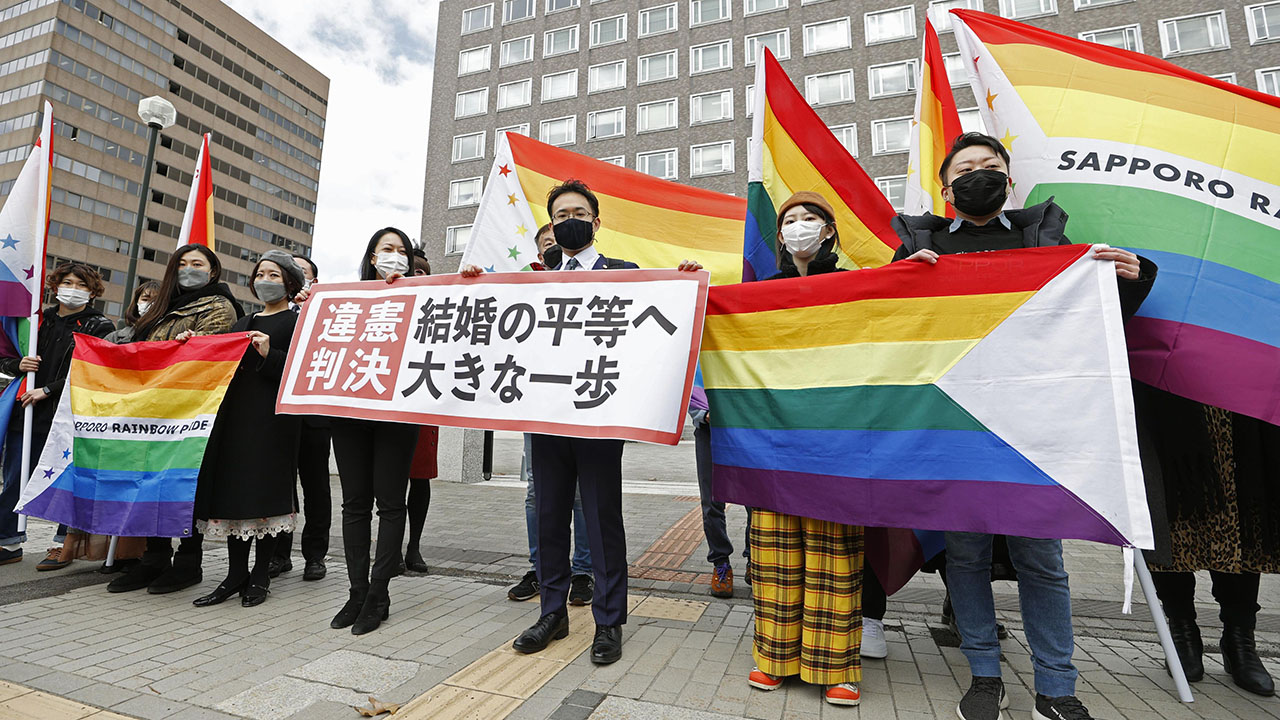A district court in Osaka concluded on Monday that Japan’s prohibition on same-sex unions is constitutionally permissible (June 20). The decision, which comes a little over a year after a district court in Sapporo decided that the statute prohibiting same-sex marriage was unconstitutional, is a blow for the nation’s LGBTQ+ population.

Japan is now the only G7 nation to not recognise same-sex marriage. Activists claim that the LGBTQ+ group is not protected in the country. According to a 2017 Amnesty International report, LGBTQ+ persons continue to endure prejudice and hence opt to conceal their identity.
According to the survey, people in Japan “resist disclosing their sexual orientation or gender identity at the job, to their families, or in their social life, frequently resulting to a sense of social and emotional displacement.”
“While individuals whose gender identity differs from the physical sex they were assigned at birth have been permitted to legally change their sex under the Act on Special Cases in Handling Gender Status for Persons with Gender Identity Disorder (Act on GID), the recognition depends on criteria that violate their human rights, including requiring the individual to be sterilised or otherwise unable to reproduce, to undergo gender confirmation surgery, and to submit to gender affirmation therapy,” the report continued.
Despite the fact that homosexual sex has been legal in Japan since 1880, traditional views and the related social stigma still exist.
According to research from the Lowly Institute, the Sapporo court had declared in 2021 that denying same-sex couples access to legal privileges that heterosexual couples are entitled to enjoy violated Article 14 of the Japanese constitution, which assures “all of the people are equal under the law.”
The six plaintiffs had requested 1 million yen (about $7,400 USD) each person in damages, citing the misery of being unable to legally marry, and activists had dubbed the Sapporo court’s decision a landmark one. However, the Osaka court dismissed the plaintiffs’ request for government compensation, concluding that Article 24 was not violated because it only applies to heterosexual marriage.
Even so, change is happening gradually. Since 2015, municipal governments in Japan have started taking modest steps to recognise same-sex unions, such as by issuing “partnership certificates,” although these papers have no legal weight. Same-sex partnerships are becoming increasingly widely accepted in the nation.
More lawmakers are showing support for the LGBTQ+ community on the political front, notably by endorsing the legalisation of same-sex unions. Members of the ruling conservative Liberal Democratic Party are included in this (LDP).
Political observers claim that the country’s conservative lawmakers have been pressured to change their positions, if only in public, as a result of increased conversations over LGBTQ+ rights in Japan. In response to worldwide pressure to advance civil rights in the run-up to the 2020 Summer Olympics, the LDP party made the vow to “increase awareness of sexual diversity” during the 2016 elections. The party had also received internal pressure to change its position on the matter.
Because it has concentrated on issues of daily living that would benefit the community and avoided identity declarations and other controversial topics, researchers claim that the LGBTQ community in Japan has taken a route that is distinctive.
